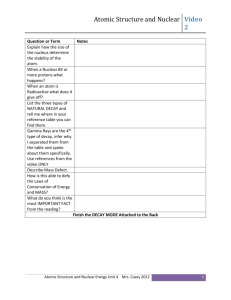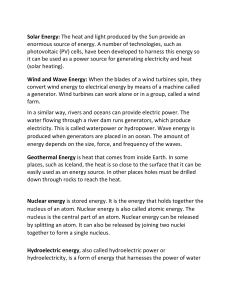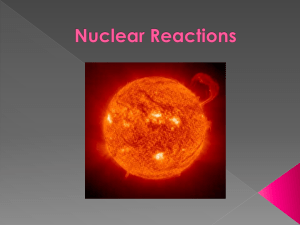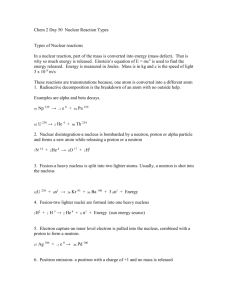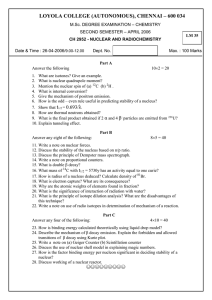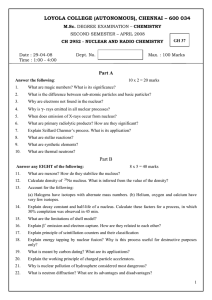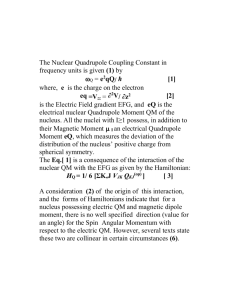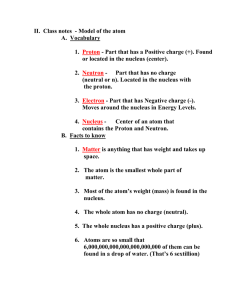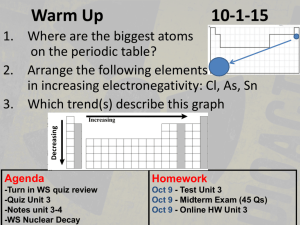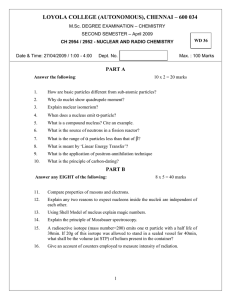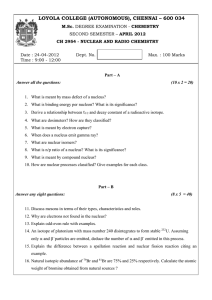AP Chemistry - Conservation of Mass and Energy Worksheet
advertisement
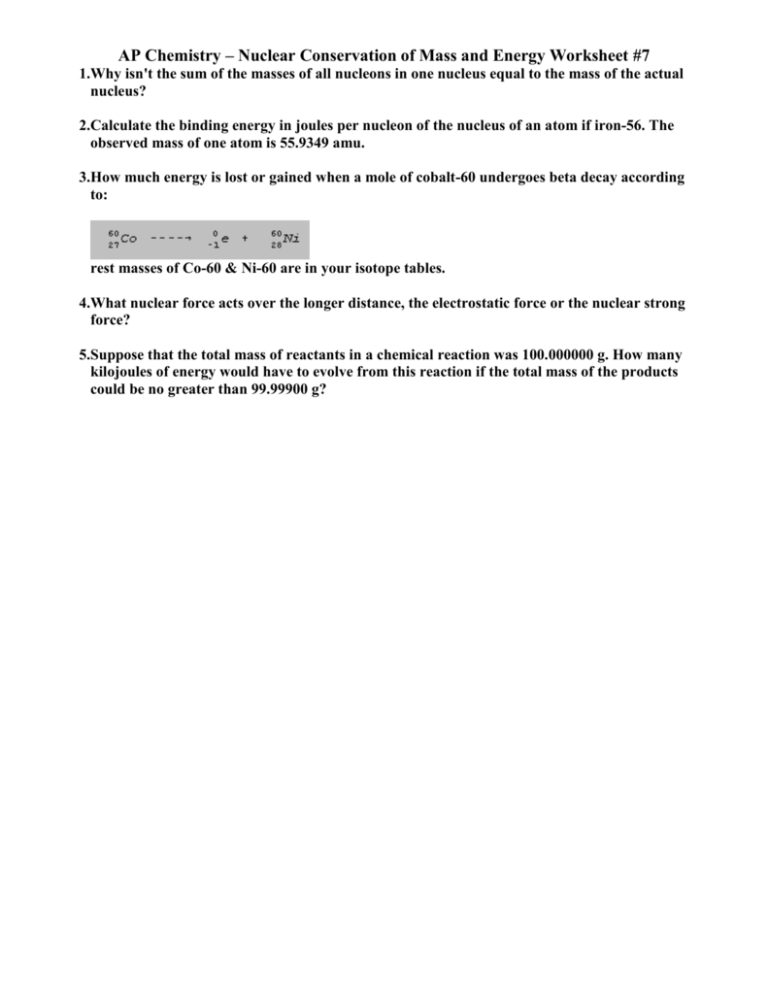
AP Chemistry – Nuclear Conservation of Mass and Energy Worksheet #7 1.Why isn't the sum of the masses of all nucleons in one nucleus equal to the mass of the actual nucleus? 2.Calculate the binding energy in joules per nucleon of the nucleus of an atom if iron-56. The observed mass of one atom is 55.9349 amu. 3.How much energy is lost or gained when a mole of cobalt-60 undergoes beta decay according to: rest masses of Co-60 & Ni-60 are in your isotope tables. 4.What nuclear force acts over the longer distance, the electrostatic force or the nuclear strong force? 5.Suppose that the total mass of reactants in a chemical reaction was 100.000000 g. How many kilojoules of energy would have to evolve from this reaction if the total mass of the products could be no greater than 99.99900 g?
